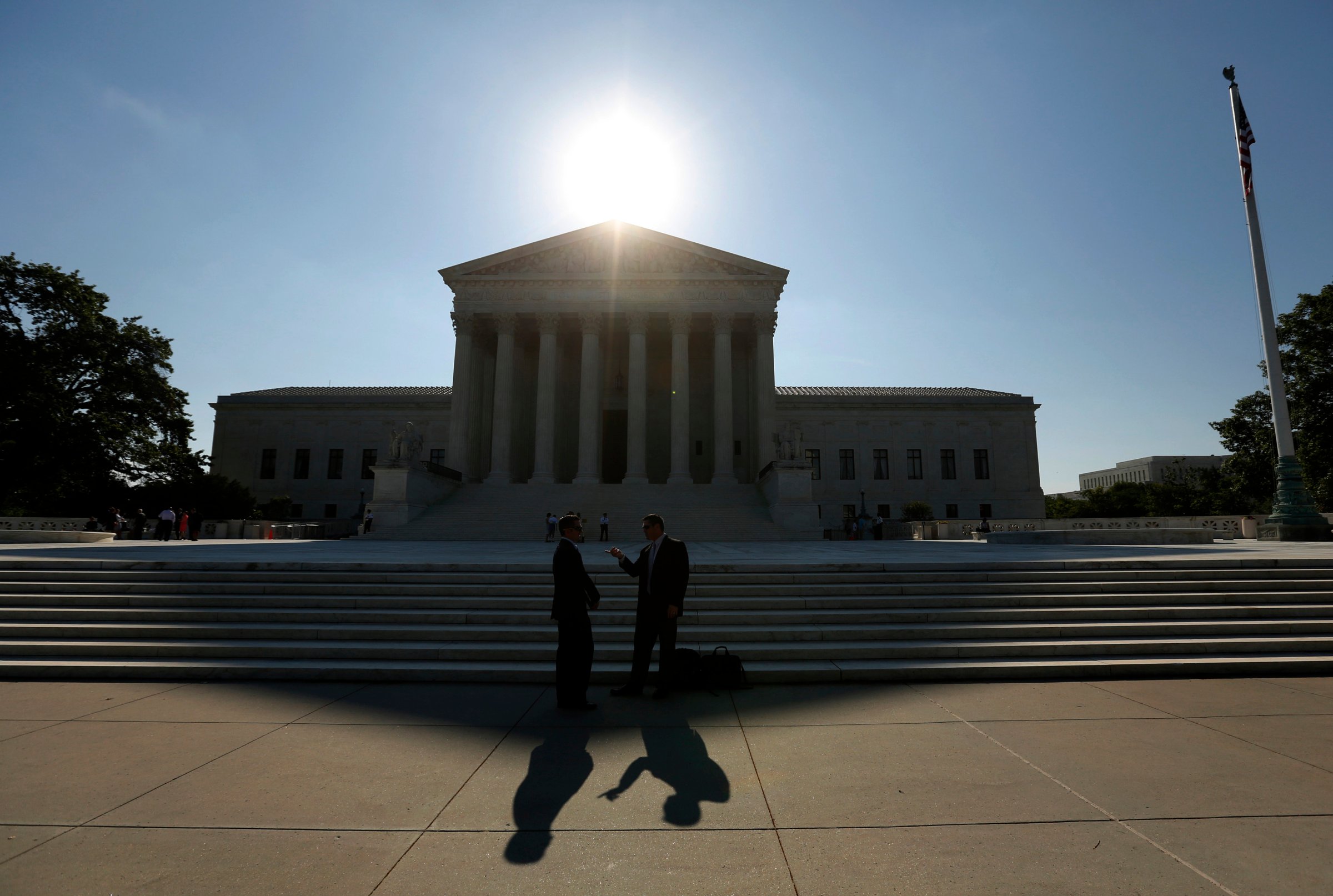
What’s particularly ironic — and maybe impressive — about SCOTUSblog’s 12 successful years covering the U.S. Supreme Court is that its reporters aren’t allowed in the courtroom on which they’re reporting.
Not through their employer, at least. The U.S. Senate has once again denied the blog’s appeal for press credentials at the nation’s highest court, citing a conflict on interest: Tom Goldstein, SCOTUSblog’s publisher, is the founding partner of a law firm that deals primarily in cases argued before the Supreme Court.
“Having found that SCOTUSblog fails the fundamental test of editorial independence, the committee looked no further at other questions raised by this application,” the Senate’s Standing Committee of Correspondents wrote in an open letter to Goldstein on Monday. “If SCOTUSblog were to take additional steps to separate itself from Goldstein & Russell and any other lawyer or law firm who is arguing before the Supreme Court, we would welcome a new application.”
Though it earned its journalistic chops as a source of news on the Supreme Court — its diligent coverage of Affordable Care Act hearings and opinion in 2013 earned a Peabody Award — SCOTUSblog also operates as a forum for legal scholars to offer analysis and opinions on judicial decisions.
To fortify its coverage, the blog has pushed for years to earn court press credentials. Its leading writer, veteran court reporter Lyle Denniston, also works for numerous other outlets, on whose press passes he has also relied for SCOTUSblog. Monday’s decision comes in response to Goldstein’s appeal of another credential rejection in April.
“All in all, the refusal by the court and the Senate to credential us have always seemed strange. No one seems to doubt that we are a journalistic entity and that we serve a public function. Winning the Peabody and other awards would seem to confirm that,” Goldstein wrote on the blog. “Credentialing the blog doesn’t give us any special power or recognition; it just makes our jobs incrementally easier. All in all, it doesn’t seem to make sense to impose burdens on us that are greater than those that apply to others who fundamentally do the same thing.”
More Must-Reads from TIME
- Cybersecurity Experts Are Sounding the Alarm on DOGE
- Meet the 2025 Women of the Year
- The Harsh Truth About Disability Inclusion
- Why Do More Young Adults Have Cancer?
- Colman Domingo Leads With Radical Love
- How to Get Better at Doing Things Alone
- Michelle Zauner Stares Down the Darkness
Contact us at letters@time.com